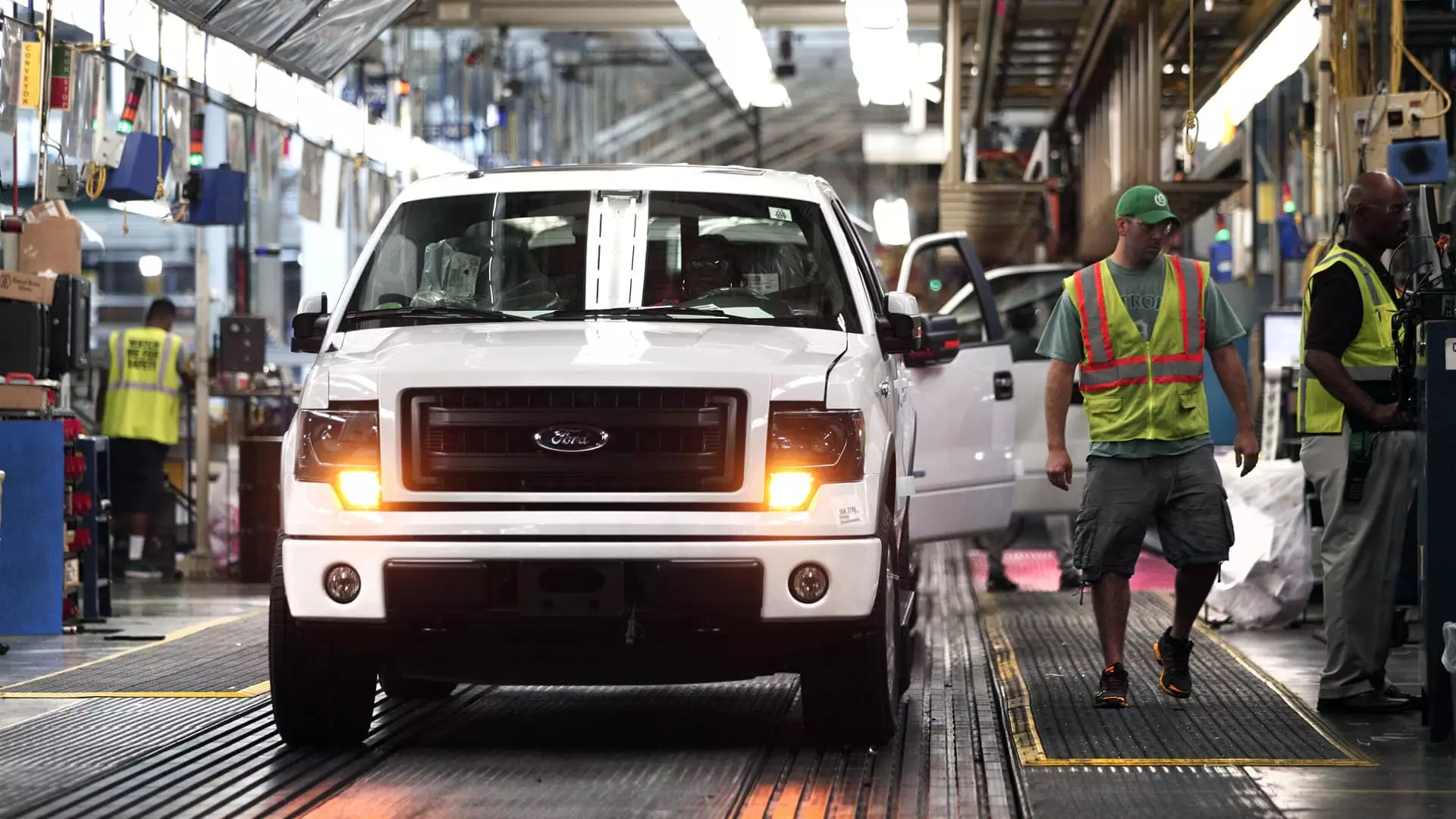The stock market is a dynamic entity, continuously influenced by a range of factors, including analyst ratings, company news, and broader economic conditions. Today, several major companies showcased notable movements that reflect shifts in investor sentiment and market positioning. Understanding these movements allows investors to glean insights into potential trends and challenges within various sectors.
Ford Motor Company has emerged as a stand-out player today, witnessing a remarkable increase in its share price by 2.3%. This shift comes on the heels of an upgrade from Goldman Sachs, which altered its rating from neutral to buy. The financial institution emphasized Ford’s promising software initiatives and its Super Duty vehicle line as significant growth drivers. The automotive sector is increasingly pivoting to technology integration, and Ford’s strategic positioning in this domain could bolster its long-term profitability. As consumer preferences shift towards more technologically advanced vehicles, Ford’s investments may pay substantial dividends.
In contrast to Ford’s optimism, The Walt Disney Company faced a dip in its stock value, slipping approximately 0.9%. This decline followed a downgrade from Raymond James, which moved its rating to market perform from outperform. According to analyst Ric Prentiss, Disney’s parks segment appears to be under mounting pressure, a sentiment that may signal potential challenges ahead for the entertainment giant. As competition increases and consumer behavior evolves post-pandemic, Disney faces the challenge of revitalizing its parks and experiences to maintain its foothold in the market.
CVS Health has become a focal point after its stock rose 2% amid reports of an ongoing strategic review of its business model. Sources indicate that CVS is evaluating options, including a potential breakup of its operations. This news, first reported by Reuters, reflects a broader trend in the healthcare sector where companies are seeking operational efficiencies and shareholder value. As CVS navigates this transitional phase, it will be critical for the company to align its strategic choices with market demands while reassuring investors about its long-term vision.
Anheuser-Busch InBev also marked a positive day in the markets, with a gain of 1.5%. This uplift follows an upgrade from Citi, which noted improving margins and decreasing costs as key factors contributing to its positive outlook. Furthermore, Citi anticipates that Anheuser-Busch will announce a substantial share buyback program, estimated at $1 billion. This confidence in the beverage maker highlights the resilience of the consumer staples sector, even in the face of economic fluctuations.
Clorox shares rose over 1.5% after receiving an upgrade from Jefferies, which declared the company at an inflection point with the potential for higher earnings. The household products industry is undergoing transformations, and Clorox’s adjustments to meet consumer needs could lead to a favorable trajectory for its stock. Investors are increasingly attentive to companies that can demonstrate adaptability and resilience, particularly in challenging economic climates.
Alphabet, the parent company of Google, experienced a 1.2% increase following new coverage initiated by Pivotal. The firm assigned a buy rating, asserting that Alphabet holds an attractive valuation across various scenarios. With a price target of $215, implying roughly 30% upside potential, investors are keenly focused on Alphabet’s unique position within the tech ecosystem, particularly as digital advertising continues to evolve.
Boeing’s stock, unfortunately, revealed a decline of about 1% today, reflecting concerns over potential stock sales to raise funds amid ongoing challenges. A Bloomberg report indicated that the company is considering generating at least $10 billion to alleviate cash reserve strains, which have been exacerbated by recent factory worker strikes. The aviation industry’s recovery remains uncertain, and investors will be watching closely to see how Boeing addresses these challenges in the near term.
The fluctuations observed in these companies represent broader themes within the market, illustrating both opportunities and challenges that investors must navigate. As companies like Alcoa and Adobe experience gains—reflecting bullish projections for industries like aluminum and cloud technology—investors must remain vigilant of potential downgrades or disruptions faced by others, such as HP and Disney. The market’s resilience will undoubtedly depend on how well these companies adapt to changing consumer behaviors and macroeconomic pressures moving forward.

